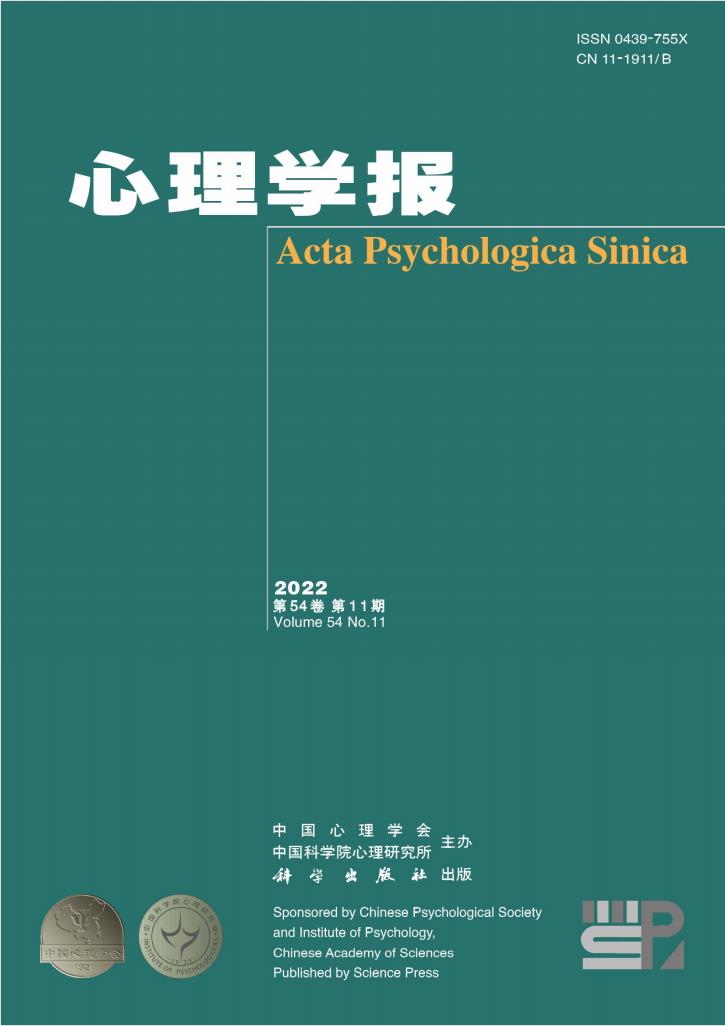How can successful people share their goodness with the world: The psychological mechanism underlying the upper social classes’ redistributive preferences and the role of humility
IF 1.3
4区 心理学
Q3 PSYCHOLOGY, MULTIDISCIPLINARY
引用次数: 0
Abstract
A large number of studies conducted in Europe and the Americas have explored the negative relationships between social class and redistributive preferences in recent years. However, few studies have addressed the cross-cultural consistency or explored the internal mechanism and intervention strategies of the effects of social class on redistributive preferences. The present study aimed to systematically and deeply explore the relationships between social class and redistributive preferences through three studies in the context of Chinese society. Study 1 explored the direct relationship between social class and redistributive preferences. Based on national data from the Chinese General Social Survey of 2015, 8376 participants from all provinces and autonomous regions of China and indexes of measuring social class and redistributive preferences were obtained. Based on the inequality maintenance model of social class, Study 2 further explored the mediating role of attribution for the rich–poor gap between social class and redistributive preferences. 621 urban and rural residents were investigated by using objective and subjective socioeconomic status (SES) scales, a rich–poor attribution questionnaire, and a redistributive preferences scale. Study 3 was devoted to exploring the intervention effect of humility on the redistributive preferences of the upper social classes. A sample of 103 undergraduates from the upper social class were randomly assigned to humility priming group or control group. The results showed that all social class indexes can strongly and negatively predict redistributive preferences, meaning that, as in Western society, upper social-class Chinese individuals also tend to have lower redistributive preferences than those from lower social classes. In addition, the influences of social class on redistributive preferences could be partly mediated through the attribution for the rich–poor gap. Compared with individuals from a subjectively lower class, upper-class individuals tended to attribute the gap between rich and poor to internal causes. That is to say, they tended to attribute the rich–poor gap to personal factors, such as abilities, efforts, and ambition. This attitude lowered upper-class individuals’ redistributive preferences even further. Finally, a short video was used to prime participants’ feelings of humility. Compared with a control group that watched a neutral video, those upper-class undergraduates who watched life stories of people with humble qualities experienced higher states of emotional humility. Priming a humble state lowered their tendency to attribute the gap between rich and poor to internal causes, and further improved their redistributive preferences to a significant extent. In conclusion, these three studies deeply explore the relationships between social class and redistributive preferences in the context of Chinese society. Combined with other studies performed in Western societies, these results showed that, to some extent, the negative relationship between social class and redistributive preferences is cross-cultural. The exploration of this mechanism provides supporting data and enrichment for the inequality maintenance model of social class. The finding that humility is an important intervention strategy will further insight into social redistribution. These results suggest that, in order to render the benefits of economic development accessible to more people, social governance could cultivate individual humility through moral education, cultural development, and fostering a community spirit.成功人士如何与世界分享他们的善良:上层社会阶层的再分配偏好和谦逊的作用背后的心理机制
近年来,在欧洲和美洲进行的大量研究探讨了社会阶层与再分配偏好之间的负面关系。然而,很少有研究涉及跨文化的一致性,或探讨社会阶层对再分配偏好影响的内在机制和干预策略。本研究旨在通过三项研究,系统深入地探讨中国社会背景下的社会阶层与再分配偏好之间的关系。研究1探讨了社会阶层和再分配偏好之间的直接关系。基于2015年中国社会综合调查的全国数据,获得了来自中国各省、自治区的8376名参与者以及衡量社会阶层和再分配偏好的指标。基于社会阶层的不平等维持模型,研究2进一步探讨了归因在社会阶层贫富差距和再分配偏好之间的中介作用。采用主观和客观社会经济地位量表、贫富归因问卷和再分配偏好量表对621名城乡居民进行了调查。研究3致力于探索谦逊对上层社会再分配偏好的干预作用。103名来自上流社会阶层的大学生被随机分配到谦逊启动组或对照组。结果表明,所有社会阶层指数都能有力地、负向地预测再分配偏好,这意味着,与西方社会一样,中国上层社会的个人也往往比下层社会的个人具有更低的再分配偏好。此外,社会阶层对再分配偏好的影响可以部分通过贫富差距的归因来调节。与主观上来自下层的个人相比,上层个人倾向于将贫富差距归因于内部原因。也就是说,他们倾向于将贫富差距归因于个人因素,如能力、努力和抱负。这种态度进一步降低了上层阶级个人的再分配偏好。最后,用一段短视频来激发参与者的谦逊感。与观看中性视频的对照组相比,那些观看有谦逊品质的人的生活故事的上流社会本科生经历了更高的情感谦逊状态。建立一个谦逊的国家降低了他们将贫富差距归因于内部原因的倾向,并在很大程度上进一步改善了他们的再分配偏好。总之,这三项研究深入探讨了中国社会背景下社会阶层与再分配偏好之间的关系。结合在西方社会进行的其他研究,这些结果表明,在某种程度上,社会阶层和再分配偏好之间的负面关系是跨文化的。这一机制的探索为社会阶层的不平等维持模型提供了支撑数据和丰富内容。谦逊是一种重要的干预策略,这一发现将进一步深入了解社会再分配。这些结果表明,为了让更多的人能够获得经济发展的好处,社会治理可以通过道德教育、文化发展和培养社区精神来培养个人的谦逊。
本文章由计算机程序翻译,如有差异,请以英文原文为准。
求助全文
约1分钟内获得全文
求助全文
来源期刊

心理学报
Psychology-Psychology (all)
CiteScore
1.70
自引率
13.30%
发文量
1612
期刊介绍:
Acta Psychologica Sinica (ISSN 0439-755X) is a scholarly journal sponsored by the Chinese Psychological Society and the Institute of Psychology, Chinese Academy of Sciences, and published monthly by the Science Press.
Acta Psychologica Sinica has been included in many important national and international indexing systems such as SCOPUS (Elsevier), ESCI (Web of Science), PsycINFO (APA), CSCD. It is the flagship journal of the Chinese Psychological Society that publishes peer-reviewed original empirical studies and theoretical articles spanning the entire spectrum of scientific psychology.
Acta Psychologica Sinica publishes high-quality research that investigates the fundamental mechanisms of mind and behavior and aims to deliver scientific knowledge to enhance our understanding of culture and society. It welcomes submissions of manuscripts reporting research that is up-to-date, scientifically excellent, and of broad interest and significance.
 求助内容:
求助内容: 应助结果提醒方式:
应助结果提醒方式:


